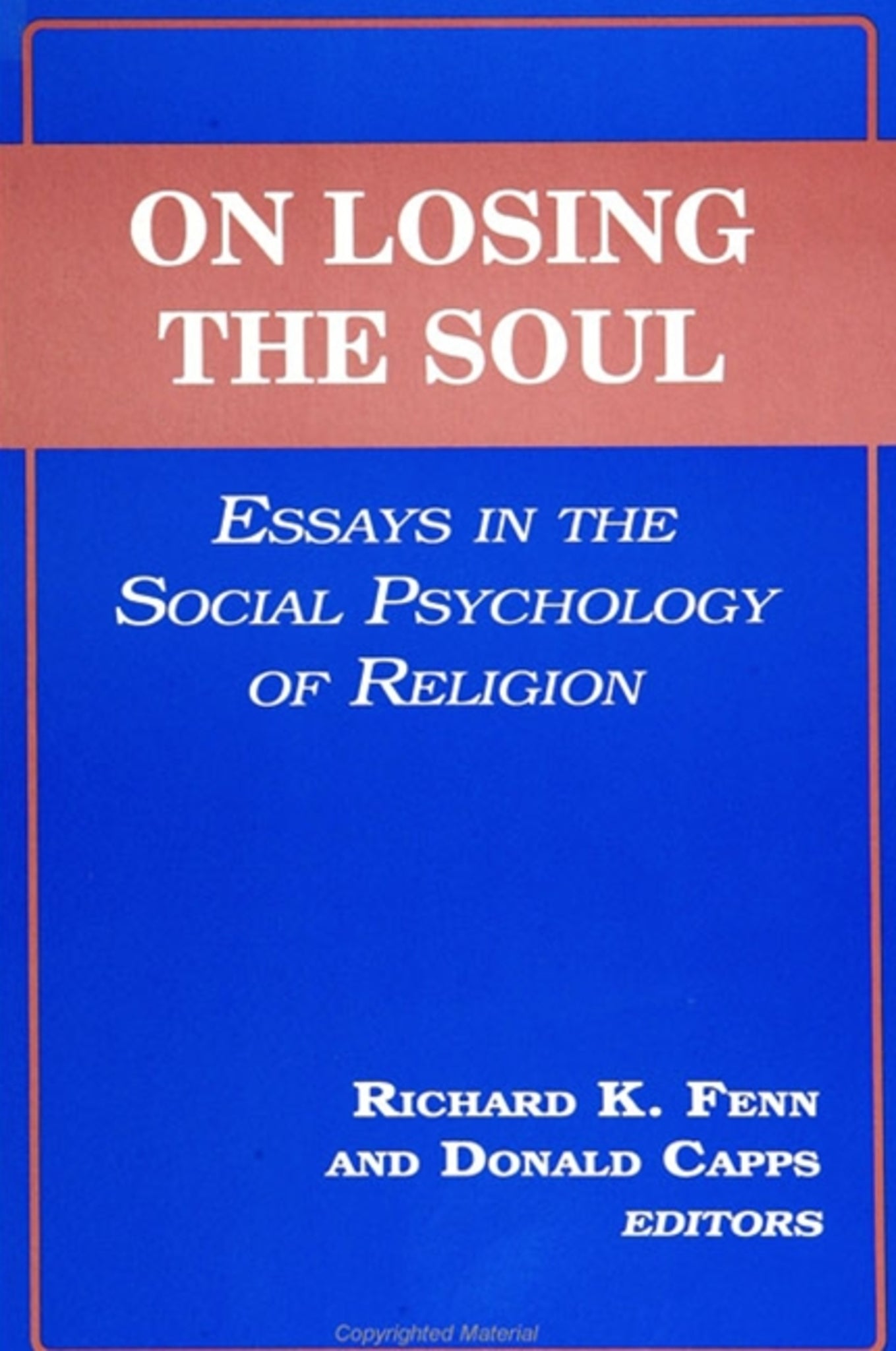We're sorry. An error has occurred
Please cancel or retry.
On Losing the Soul

Some error occured while loading the Quick View. Please close the Quick View and try reloading the page.
Couldn't load pickup availability
- Format:
-
01 July 1995

Introduces the notion of the soul and explores some of the indications, causes, and consequences for its being missing, especially in discussions of individuality.
The social scientific literature on the self has been marred by a general indifference to the levels of the self that escape observation. The literature, on the one hand, makes claims about the extent of individualism in American society or claims to see a narcissistic social character widespread in the American public. On the other hand, very little is known about the self at levels that escape observation, but these are the levels at which the self is both most vulnerable and, we argue, most vital. In this volume, the notion of the "soul" is put forward as a hypothesis with which to challenge social sciences to explore the self at depths well beyond that of social relationships.


"The various essays in this book address one of the great deficiencies in the social sciences—an in-depth discussion of soul, transcendence, and the feeling of finitude humans face but which traditional social scientific discussion refuses to consider. The authors point to the acute need to introduce questions of value and transcendence into cultural and academic debate." — Curt Cardorette, University of Rochester
"This is a provocative idea and should generate much debate and enthusiasm. Each of the essays is very well written.
"As a set, these essays argue for the inclusion of the concept of the soul into modern scientific discourse. This is the uniqueness of the text. Fenn's perceptive comments set the tone for the "soul loss" theme to which these essays are collectively a response. That modern scientist would argue for the inclusion of the soul into scientific discourse is itself of major intellectual importance. At a minimum, the controversy such a claim brings to the intellectual community is welcome, especially in a field which some find has become a bit too complacent. I think this text can stimulate some genuine intellectual excitement over the controversial claim that our collective malady as a discipline is indeed loss of the soul." — Ralph W. Hood, Jr. University of Tennessee at Chattanooga
Introduction: Why the Soul?
Richard K. Fenn
Part I: Soul-Loss and Ritual
1. Soul-Loss in Antiquity
Richard K. Fenn
2. Bedeviled
David Martin
Part II: Abuse and Soul-Loss
3. Whose Soul Is It Anyway? Domestic Tyranny and the Suffocated Soul
Bernice Martin
4. Soul-Loss and Sin: A Dance of Alienation
Susan L. Nelson
Part III: Professional Discourse without Soul
5. Soul Recovery through Remystification: Dostoyevski As a Challenger of Modern Psychology
Owe Wikstrom
6. Enrapt Spirits and the Melancholy: The Locus of Division in the Christian Self and American Society
Donald Capps
7. Soul-Loss and Religious Consolation in Two Lives
Susan Kwilecki
Part IV: Soul-Loss, the Decadence of Ritual, and Play
8. Soul-Loss, Sex Magic, and Taboos in Contemporary America: The Death of Rabbit Angstrom
Roger A. Johnson
9. Desire, Domination, and the Life and Death of the Soul
John McDargh
10. Soul-Loss Revisited
Richard K. Fenn
Index



